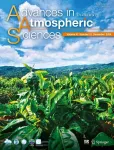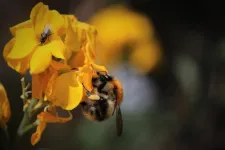(Press-News.org)
Tea is a significant global commodity, with an industry worth tens of billions of dollars and growing. However, its production—both in terms of quantity and quality—is highly sensitive to climate variations, particularly in the context of long-term human-induced global warming and its associated shorter-term impacts such as extreme weather events.
To tackle this challenge, a collaborative initiative between UK and Chinese scientists and tea industry stakeholders has been launched. This project, known as “Tea-CUP” (Co-developing Useful Predictions), aims to develop actionable climate information, or “climate services,” to inform adaptation measures and decision-making within the tea industry. The initiative’s progress is detailed in a recent paper published in Advances in Atmospheric Sciences.
Recognizing the importance of this work, the journal’s editor, Professor Zong-Liang Yang from the Jackson School of Geosciences at the University of Texas at Austin, recommended the paper for the cover of the issue.
“This collaborative effort exemplifies the goals of climate science: delivering climate services that benefit society directly,” remarks Professor Yang.
The cover photo, taken in a tea garden in Yunnan Province, China, by Professor Tianjun Zhou—one of the study’s authors and a key figure in fostering long-term collaboration between the UK Met Office and the Institute of Atmospheric Physics at the Chinese Academy of Sciences—highlights Yunnan’s significance as a major tea-producing region.
Professor Zhou notes, “Drought conditions in the southeastern periphery of the Tibetan Plateau, including Yunnan, are expected to become more common due to the ongoing warming of the western Pacific warm pool. For the tea industry, this means that accurate seasonal, daily, and regional forecasts would be invaluable for decision-making.”
A key takeaway from the Tea-CUP project is that the co-development of climate services tailored for the tea industry is essential for creating effective and usable climate information.
“The collaborative approach between the UK and China has demonstrated that integrating scientific knowledge with local expertise has the potential to enhance the resilience of the tea sector to climate variability and change, and develop more effective climate adaptation strategies for the tea industry,” says Dr Stacey New, an applied climate scientist working at the UK Met Office, and the paper’s first author.
While the Tea-CUP project focuses on the key region of Yunnan, where the growth of tea plants is particularly sensitive to climate variability and change, and recent extreme weather has directly impacted tea yield and quality, affecting the livelihoods of local farmers and hindering sustainable development, the findings have broader implications.
“In Yunnan, we have collected diverse data on tea yield, plantation area and prices, as well as temperature and precipitation, to build models that reveal the interactions between climate variation and tea production,” explains Professor Shaojuan Li from Yunnan University of Finance and Economics.
These models help Tea-CUP scientists identify critical meteorological indicators affecting tea production, allowing stakeholders to understand how these factors influence yield and quality, thus guiding management decisions in a changing climate.
Currently, the climate services developed under the Tea-CUP project are prototypes. Future steps will involve refining and implementing these services, including the co-development of a subseasonal forecast for Yunnan and continued engagement with tea farmers.
“Ultimately, the goal is to support the construction of a climate-resilient tea industry by fostering ongoing cross-cultural knowledge exchange, informing adaptation strategies, and ensuring that climate information is tailored to the needs of tea farmers and other stakeholders,” concludes Dr New.
The Tea-CUP project represents a significant advancement in climate services for the tea industry. Importantly, however, its framework can serve as a model for user engagement not only in other tea-producing regions in China, but also across various sectors globally.
END
Women are more likely to receive good care during pregnancy where AI and other clinical software tools are used, a large review of research has found.
In a paper published in eClinicalMedicine researchers have conducted a review of over 12,000 papers and 87 articles for different AI and related software tools, investigating the impact of their use in maternity settings. A meta-analysis of 35 included studies found the odds of improved outcomes was 1.69 times higher in women cared for using CDSS, with data from over 5.2 million pregnancies in both High-Income and ...
The British Sleep Society has released a position statement in the Journal of Sleep Research advocating for the abolition of the twice-yearly clock changes in the UK and the restoration of permanent Standard Time (Greenwich Mean Time). This recommendation is based on scientific evidence highlighting the adverse effects of the clock change and Daylight Saving Time (DST) on sleep and circadian health.
The British Sleep Society emphasizes that sleep is central to health and well-being and the enforced changes of clock time to DST can interfere negatively with sleep regulation. “What we often don’t realize is that DST changes our schedules, moving them ...
Animal tracking studies for ecology and conservation all face technological limitations such as high costs or the need for tags to remain in close proximity to detectors. In research published in Methods in Ecology and Evolution, investigators describe a solution that can overcome many current limitations by employing the massive global network of personal mobile phones as gateways for tracking animals using Bluetooth low energy beacons.
In areas with medium to high density of people, these simple, lightweight, and inexpensive beacons can provide regular updates of position with a battery life of 1–3 years. Through field testing ...
In research published in the British Journal of Social Psychology, investigators examined the relationship between countries’ parental leave policies and young adults’ perceptions of social norms for the division of childcare duties between mothers and fathers.
In the study of 19,259 university students (11,924 women) from 48 countries, the degree to which participants believed childcare is equally divided among mothers and fathers and the degree to which they believed childcare should be equally divided were both stronger when parental leave was available in their particular country.
Analyses of time since policy change suggested ...
Woodland caribou populations in Canada are declining because of habitat changes that benefit common prey species of wolves (such as moose and deer), leading to increasing numbers of wolves that kill caribou. To protect caribou, wildlife managers have reduced wolf numbers in some caribou ranges, but this may cause moose populations to grow, resulting in a wolf rebound. New research in The Journal of Wildlife Management has found that reducing moose populations to historical levels through hunting could be helpful for caribou conservation.
The analysis included regions in British Columbia and Alberta with high moose populations where lethal wolf removals were annually conducted ...
Planning policies to restrict the number of new fast-food outlets leads to fewer overweight and obese children according to research led by Lancaster University.
Researchers examined the impact of policy in the North East of England where Gateshead Council prevented any existing non-fast-food commercial property from being converted into a hot fast-food takeaway.
The lead authors of the study, published in the journal Obesity, are Dr Huasheng Xiang from Lancaster University Management School and Professor of Health Inequalities Heather Brown from the Faculty of Health and Medicine at Lancaster University.
The researchers used Government collected data that ...
A team of leading sleep researchers from the British Sleep Society have called for the government to abolish the twice-yearly clock changes in the UK due to the adverse effects on sleep and circadian health.
After considering the available scientific evidence that circadian and sleep health are positively affected by the availability of natural daylight during the morning and negatively affected by the twice-yearly changes of clock time, especially when the clocks move forward in spring, the British Sleep Society recommends the abolition of the twice-yearly clock changes in the UK.
With sleep being central to health and wellbeing, the Society has issued a statement ...
Long term exposure to arsenic in water may increase cardiovascular disease and especially heart disease risk even at exposure levels below the federal regulatory limit (10µg/L) according to a new study at Columbia University Mailman School of Public Health. This is the first study to describe exposure-response relationships at concentrations below the current regulatory limit and substantiates that prolonged exposure to arsenic in water contributes to the development of ischemic heart disease.
The researchers ...
Researchers Takuma Nakamura, Kazuki Hashimoto, and Takuro Ideguchi of the Institute for Photon Science and Technology at the University of Tokyo have increased by a 100-fold the measurement rate of Raman spectroscopy, a common technique for measuring the “vibrational fingerprint” of molecules in order to identify them. As the measurement rate has been a major limiting factor, this improvement contributes to advancements in many fields that rely on identifying molecules and cells, such as biomedical diagnostics and material analytics. The findings were published in the journal Ultrafast ...
Gardens offer a steady and reliable source of nectar all year round, helping to keep pollinators fed when farmland sources are limited, researchers have discovered.
This consistency means that even small patches of gardens in rural areas can sustain pollinators, particularly in early spring and late summer when nectar is scarce.
In the findings, published today in Proceedings of the Royal Society B, scientists at the University of Bristol discovered that gardens can provide between 50% and 95% of the total nectar during these critical ...



